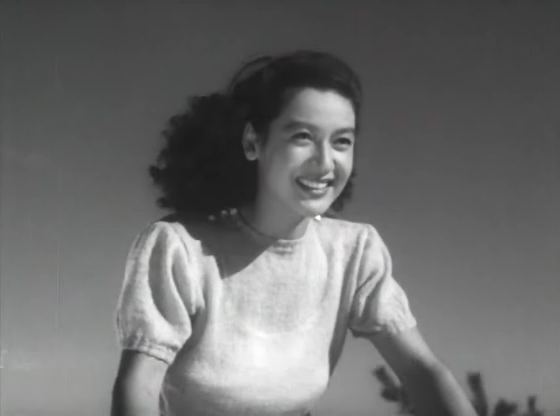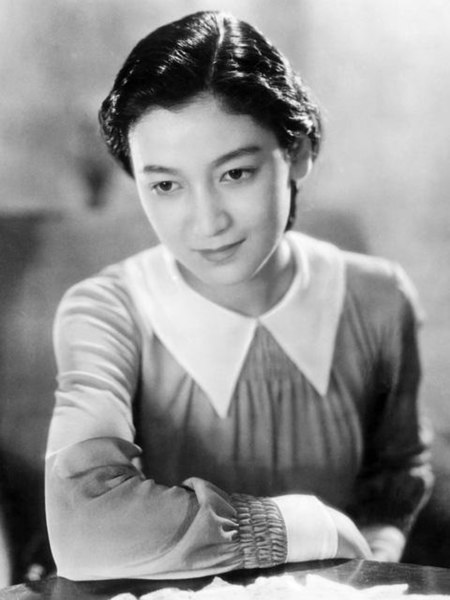
Thammasat University students interested in film, art, Japanese culture, Asian studies, sociology, history, and related subjects may find it useful to participate in a free 28 February online webinar on Presenting Ozu: A Closer Look.
The event, on Tuesday, 28 February 2023 at 8am Bangkok time, is organized by the School of Humanities, Centre for the Study of Globalization and Cultures and Centre for the Study of Globalization and Cultures, Hong Kong University (HKU).
The TU Library collection includes books about the films of Yasujiro Ozu and Ozu’s films are available for viewing at the Rewat Buddhinan Audiovisual Center on the Underground 2 level of the Pridi Banomyong Library, Tha Prachan campus.
The speaker will be the art historian Dr. Kathe Geist, author of a new book on Ozu that is available to TU students by the TU Library Interlibrary Loan (ILL) service.
Dr. Geist will be in conversation with Dr. Woojeong Joo, a research fellow at the Center for Transregional Culture and Society, Nagoya University, Japan.
Students are invited to register at this link:
https://hkuems1.hku.hk/hkuems/ec_hdetail.aspx?guest=Y&UEID=86284
Yasujirō Ozu (1903 –1963) was a noted Japanese filmmaker. Ozu’s stories, often about marriage and family, include such masterpieces as Late Spring (1949), Tokyo Story (1953), Floating Weeds (1959), and An Autumn Afternoon (1962).
Ozu films in the collection of the Rewat Buddhinan Media Center on the U2 level of the Pridi Banomyong Library include Late Autumn, Early Spring, The End of Summer, Equinox Flower, and Tokyo Twilight.
The Pridi Banomyong Library also owns a standard early work analyzing Ozu’s artistry by the American film critic Donald Richie.

Here are some plots of Ozu films, to give an idea of what happens in them:
- Tokyo Chorus: A married Tokyo man faces unemployment after standing up for an older colleague.
- Dragnet Girl: A gangster tries to find redemption with the inadvertent help of an innocent shop girl and his jealous girlfriend will do anything to keep him.
- The Story of Floating Weeds: A kabuki actor’s mistress hatches a jealous plot to bring down her lover’s son.
- A Mother Should Be Loved: Two half-brothers try to cope with the loss of their father.
- An Inn in Tokyo: Unemployed Kihachi and his two sons struggle to make ends meet. But that doesn’t keep Kihachi from wooing single mother Otaka.
- The Only Son: A widow sends her only son away to receive a better education. Years later, she visits him, finding him a poor school teacher with a wife and son.
- There Was a Father: Shuhei Horikawa, a poor schoolteacher, struggles to raise his son Ryohei by himself, despite neither money nor prospects.
- Late Spring (Banshun): Noriko is twenty-seven years old and still living with her widowed father. Everybody tries to talk her into marrying, but Noriko wants to stay at home caring for her father.
- Early Summer: A family chooses a match for their daughter Noriko, but she, surprisingly, has her own plans.
- The Flavor of Green Tea Over Rice: A childless middle-aged couple faces a marital crisis.
- Tokyo Story: An old couple visit their children and grandchildren in the city; but the children have little time for them.
- Early Spring: A young man and his wife struggle within the confines of their passionless relationship while he has an extramarital romance.
- Tokyo Twilight: Two sisters find out the existence of their long-lost mother, but the younger cannot take the truth of being abandoned as a child.
- Equinox Flower: A businessman clashes with his elder daughter over her choice of a husband.
- Good Morning: Two boys give their parents the silent treatment to pressure them into buying them a television set.
- Floating Weeds: The head of a Japanese theatre troupe returns to a small coastal town where he left a son who thinks he is his uncle, and tries to make up for the lost time, but his current mistress grows jealous.
- Late Autumn: A widow tries to marry off her daughter with the help of her late husband’s three friends.
- The End of Summer: The family of an older man who runs a small sake brewery become concerned with his finances and his health after they discover him visiting an old mistress from his youth.
- An Autumn Afternoon: An aging widower arranges a marriage for his only daughter.
These subjects may seem quiet or slow-moving to students who usually enjoy action and adventure series with lots of special effects. In Ozu’s films, there are no car chases, but there are many opportunities to understand more about Japanese life and society.
Southeast Asia and Ozu
As Donald Richie noted in an article in Film Comment in 1971 , Ozu continued to make his usual family-centered films, including There Was a Father (1942) even though the Japanese government required all directors to concentrate on wartime military propaganda:
It is now easy to forget that this picture and the one before it were made during the Pacific War, yet it must have been difficult for Ozu to make them. The industry was all but openly government-controlled and “national policy subjects” were usually insisted upon. Both of these films were about such subjects- the war, soldiers, home morale, etc.- but Ozu refused to compromise his own kind of reality. He would not sacrifice his characters to the needs of propaganda. The subject was official, but the treatment was so human that the official attitude was inherently criticized. Not only was Ozu brave in the face of governmental criticism of his own pictures, he stood up for the work of other directors as well.
Possibly as a way to make Ozu more aware of the war, the government sent him to Singapore make propaganda films about the Japanese army. There was some discussion of his making a film in Malaysia, but that never happened. Instead, he stayed in Singapore and watched foreign films which were available in Singapore, but which were no longer shown in Japan, such as Citizen Kane directed by Orson Welles. The TU Library owns a copy of Citizen Kane, which may be viewed at the Rewat Buddhinan Media Center, and also some books about the film.
Ozu would sometimes claim that Citizen Kane was his favorite film, and other times he would mention the pacifist silent film, Civilization, directed by the American Thomas H. Ince. Other silent films he enjoyed included A Woman of Paris directed by Charlie Chaplin.
Thailand and an Assistant of Ozu’s
There is an unexpected link for Ozu to Thailand through the director Shôhei Imamura, one of his former assistants. Imamura made three much-acclaimed documentaries, In Search of the Unreturned Soliders in Malaysia (1971), In Search of the Unreturned Soldiers in Thailand (1971), and Outlaw-Matsui Returns Home (1973), about former Japanese soldiers who rejected Japanese society after the Second World War and chose to remain in Southeast Asia. These films are available from the TU Library Interlibrary Loan Service (ILL).
In Search of the Unreturned Soldiers in Thailand by Imamura features three soldiers who decided not to go home again once that was possible, discussing their wartime experiences.

(All images courtesy of Wikimedia Commons)
